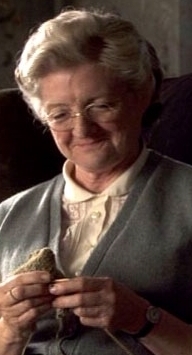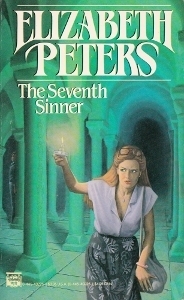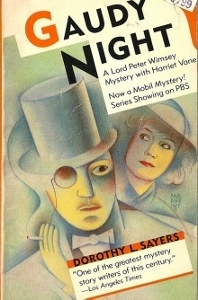Detectives in Glasses
 The other day I was noodling a possible scene for the Liss MacCrimmon mystery I’m currently writing. I don’t know if this scene will appear in this book (or some future book) or not, but the gist of it is that Liss is taken out into the wilderness and left there by the villain, who needs to get her out of the way for a certain period of time but doesn’t particularly want to murder her. She’s given a fighting chance to make it back to civilization safely. She’s not tied up. She is warmly dressed (it’s March in Maine). And a couple of hours of walking, if she doesn’t end up going around in circles, should bring her to a house with a phone. It is nighttime, which makes things harder. Maybe she’s been hit on the head and is still dizzy or seeing double. I’m not sure about that part. And that bad knee of hers could act up to cause her some problems. There was a story in the news here in Maine just recently about a man who, after breaking his leg in a nighttime snowmobile accident, had to crawl a mile and a half to reach the house of a friend and get help. It took him six hours. Liss could probably do that, but I’m not sure I want to put her through that much trauma.
The other day I was noodling a possible scene for the Liss MacCrimmon mystery I’m currently writing. I don’t know if this scene will appear in this book (or some future book) or not, but the gist of it is that Liss is taken out into the wilderness and left there by the villain, who needs to get her out of the way for a certain period of time but doesn’t particularly want to murder her. She’s given a fighting chance to make it back to civilization safely. She’s not tied up. She is warmly dressed (it’s March in Maine). And a couple of hours of walking, if she doesn’t end up going around in circles, should bring her to a house with a phone. It is nighttime, which makes things harder. Maybe she’s been hit on the head and is still dizzy or seeing double. I’m not sure about that part. And that bad knee of hers could act up to cause her some problems. There was a story in the news here in Maine just recently about a man who, after breaking his leg in a nighttime snowmobile accident, had to crawl a mile and a half to reach the house of a friend and get help. It took him six hours. Liss could probably do that, but I’m not sure I want to put her through that much trauma.
Whatever I end up doing, she’s obviously going to survive the ordeal and get back in time to foil the villain’s evil plan. To create such a scene and make it believable, a writer (in this case, me) has to try to get into the head of the character, to feel what she’s feeling, react as she’s reacting. Liss is a lot younger and much more physically fit than I am. She’s also considerably braver. But the thing that stood out in my mind as I attempted to put myself in her place in this situation was that her eyesight is also a heck of a lot better than mine. If I was the one being abandoned in the wilderness and the villain wanted to make sure I’d have trouble finding my way out, all he or she would have to do is take away my glasses.
 That may explain why most fictional series detectives appear to have excellent eyesight. I tried to think of mysteries I’ve read where the sleuth wore glasses, or even contact lenses. The only example I could come up with was Elizabeth Peters’s librarian sleuth Jacqueline Kirby (The Seventh Sinner), whose mood can be judged by how far down her nose her glasses have slipped. In search of other examples, I posted a request on two listservs, Dorothy L and Sisters in Crime, and Googled “Fictional Detectives Who Wear Glasses” and the results confirmed my suspicion that bespectacled sleuths are few and far between.
That may explain why most fictional series detectives appear to have excellent eyesight. I tried to think of mysteries I’ve read where the sleuth wore glasses, or even contact lenses. The only example I could come up with was Elizabeth Peters’s librarian sleuth Jacqueline Kirby (The Seventh Sinner), whose mood can be judged by how far down her nose her glasses have slipped. In search of other examples, I posted a request on two listservs, Dorothy L and Sisters in Crime, and Googled “Fictional Detectives Who Wear Glasses” and the results confirmed my suspicion that bespectacled sleuths are few and far between.
Many of the names people came up with were older, either in the sense of series written quite some time ago, or because the detective is getting on in years. Terry Shames’s detective, Samuel Craddock (A Killing at Cotton Hill), wears glasses. So does James Montgomery Jackson’s Seamus McCree (Bad Policy). Ilene Schneider’s protagonist in Chanukah Guilt is “blind as a bat with its sonar jammed” without her glasses. Dennis Palumbo’s psychologist sleuth Daniel Rinaldi (Mirror Image) wears glasses. Marni Graff’s Nora Tierney (The Blue Virgin) wears them, but she switches to contact lenses for the third book in the series (The Scarlet Wench, 2014). In historical mysteries, Laurie R. King’s Mary Russell is nearsighted and Edith Maxwell’s Quaker midwife, Rose Carroll, in her new series in progress, set in 1888 (Breaking the Silence), wasn’t originally going to wear glasses but is now.
 Bespectacled sleuths from days gone by include Ellery Queen (pince-nez glasses), Margery Allingham’s Albert Campion (horn-rimmed glasses), Dorothy L. Sayers’s Lord Peter Wimsey (a monacle), and Dorothy Dunnett’s Johnson Johnson (bifocals). Agatha Christie’s Miss Marple wears glasses, too, but only, apparently, when she’s knitting. There have been a number of detectives, past and present, who use reading glasses or wear contact lenses, but even they are somewhat rare in crime fiction.
Bespectacled sleuths from days gone by include Ellery Queen (pince-nez glasses), Margery Allingham’s Albert Campion (horn-rimmed glasses), Dorothy L. Sayers’s Lord Peter Wimsey (a monacle), and Dorothy Dunnett’s Johnson Johnson (bifocals). Agatha Christie’s Miss Marple wears glasses, too, but only, apparently, when she’s knitting. There have been a number of detectives, past and present, who use reading glasses or wear contact lenses, but even they are somewhat rare in crime fiction.
 Let’s face it. If a sleuth is going to flirt with danger, wearing glasses could put him or her at a distinct disadvantage. Vision problems may add dimension to a character and allow for a few interesting twists, too, but it isn’t hard to understand why most protagonists in mystery novels have excellent eyesight.
Let’s face it. If a sleuth is going to flirt with danger, wearing glasses could put him or her at a distinct disadvantage. Vision problems may add dimension to a character and allow for a few interesting twists, too, but it isn’t hard to understand why most protagonists in mystery novels have excellent eyesight.
Then again, there have been at least two successful detectives who couldn’t see at all, Caroline Roe’s Isaac of Girona, a blind physician in a series set in medieval Spain (Remedy for Treason), and Bruce Alexander’s 18th century magistrate, Sir John Fielding (Blind Justice).
Lea Wait's Blog
- Lea Wait's profile
- 509 followers



